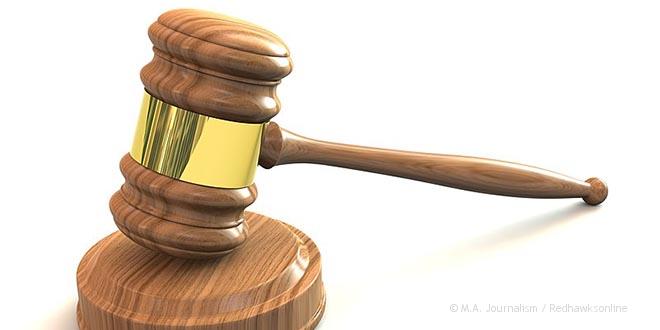How Epstein’s associate used her womanhood to sex traffic young girls
On Dec. 29, 2021, a jury in New York City convicted Ghislaine Maxwell on five of six counts of grooming minors for sexual abuse. The jury found that Maxwell, in collaboration with her longtime associate, Jeffery Epstein, lured underage girls as young as 14 to be part of an Epstein-led sex trafficking operation. Her sentencing is set for June 28 and she faces up to 65 years in prison. Maxwell did not testify at trial and continues to deny the allegations.
60-year-old Maxwell pleaded “not guilty” to the charges from her interactions with four teenage girls from 1994 to 2004. During those years, Maxwell was romantically involved with Epstein and later worked for him.
The New York jury found Ghislaine Maxwell guilty of being the primary procurer of minors for the sex trafficking ring she operated with Jeffery Epstein. While Epstein led the criminal operation, Maxwell was integral in its operations, using her womanhood to groom and manipulate girls into sexual relationships with Epstein and others.
“The numbers of female sex trafficking perpetrators are upwards of about 30%,” said Minnehaha Academy counselor Christine Paton. “Girls trust women. So if you’re a woman who is trying to groom a young girl, you’re going to have more of a trust factor.”
WHO IS GHISLAINE MAXWELL?
Ghislaine Maxwell was born on December 25, 1961, in France. She was raised in Oxford by her mother Elisabeth and her father Robert Maxwell. Her father was a well-known British media proprietor and Parliament member.
At the center of decades of controversy, Maxwell and Epstein used their wealth and connections to gain access to the highest levels of society in government and business. Some Maxwell/Epstein connections include former Presidents Bill Clinton (Ghislaine even attended Chelsea Clinton’s wedding) and Donald Trump, Prince Andrew in the UK, and tech mogul Bill Gates.
“Research on power and status is helpful in explaining situations like these,” said Steve Guglielmo, Associate Professor of Psychology at Macalester. “People with greater social power perceive their actions to be less constrained; in other words, they feel they are more able to do what they want. Even more so, powerful people are more morally lenient toward themselves than toward others: they view their own morally questionable behaviors as less immoral than someone else’s (a form of moral hypocrisy). In part, this is because people, in general, are very good at justifying their own behavior, or explaining why our own actions were defensible or appropriate.”
Epstein and Maxwell met in the early 1990s at a party. Almost immediately, Maxwell began assisting Epstein in his “pyramid scheme” of sexual abuse. In turn, she received 30 million dollars from Epstein from 1999 to 2007.
“I think Maxwell is extremely manipulative. So often, if you’re in a scary situation in public, you ask a woman for help, not a man,” said junior Liv Andreasen. “She’s almost worse than Epstein for that reason. She needs to go to court and give up all of the names she has.”
CONNECTION TO EPSTEIN
In August 2019, Jeffery Epstein was found guilty of federal charges for sex trafficking exploitation of dozens of underage girls at his homes in Manhattan, Palm Beach, and other locations, with allegations dating back as far as 2002. He sexually abused and trafficked 36 underage girls, some as young as 14. However, it’s possible that he and Maxwell were involved in the sexual abuse of over 100 young girls.
“I think the situation sheds light on Maxwell’s power because it was such a big case and it is shocking,” said Paton. “How is this woman, who looks put-together and sophisticated, operating like that? I think people get caught up in the power of those kinds of positions. It seems like there were some of her own issues, I’m sure played into that. But there’s a good number of women who are involved in sex trafficking.”
Investigations into Epstein began in 2005 after the parents of a 14-year-old girl told Palm Beach police that Epstein had molested their daughter at his home. According to the Miami Herald, by 2008, when Epstein was granted his now-infamous plea deal, federal prosecutors had identified 36 underage victims.
Epstein purportedly died of suicide at Metropolitan Correctional Center, New York, on August 10, 2019, under highly unusual circumstances.
“It sickens me that people with power, influence, and wealth chose to exploit and victimize young girls, and did so strategically for years,” said Spanish teacher Anne Calvin. “It’s impossible to say what motivated Maxwell’s actions, but I believe greed was at the heart of it – greed for power, influence, and status, and a complete disregard for human life and dignity.”
While the Maxwell conviction brought justice to one criminal, there are potentially dozens of Epstein/Maxwell clients who have yet to be named or face justice.
“The situation shows the two different identities of celebrities and very real corruption,” said junior Jaeden Micco. “Some people might be involved in [sexual abuse of minors] just to keep power and that’s the sad truth. People want power so badly that they involve themselves in that terrible industry.”
The Epstein/Maxwell sex trafficking ring may have been disrupted, but human trafficking remains a problem around the world, with an estimated 40 million victims affected every year.

